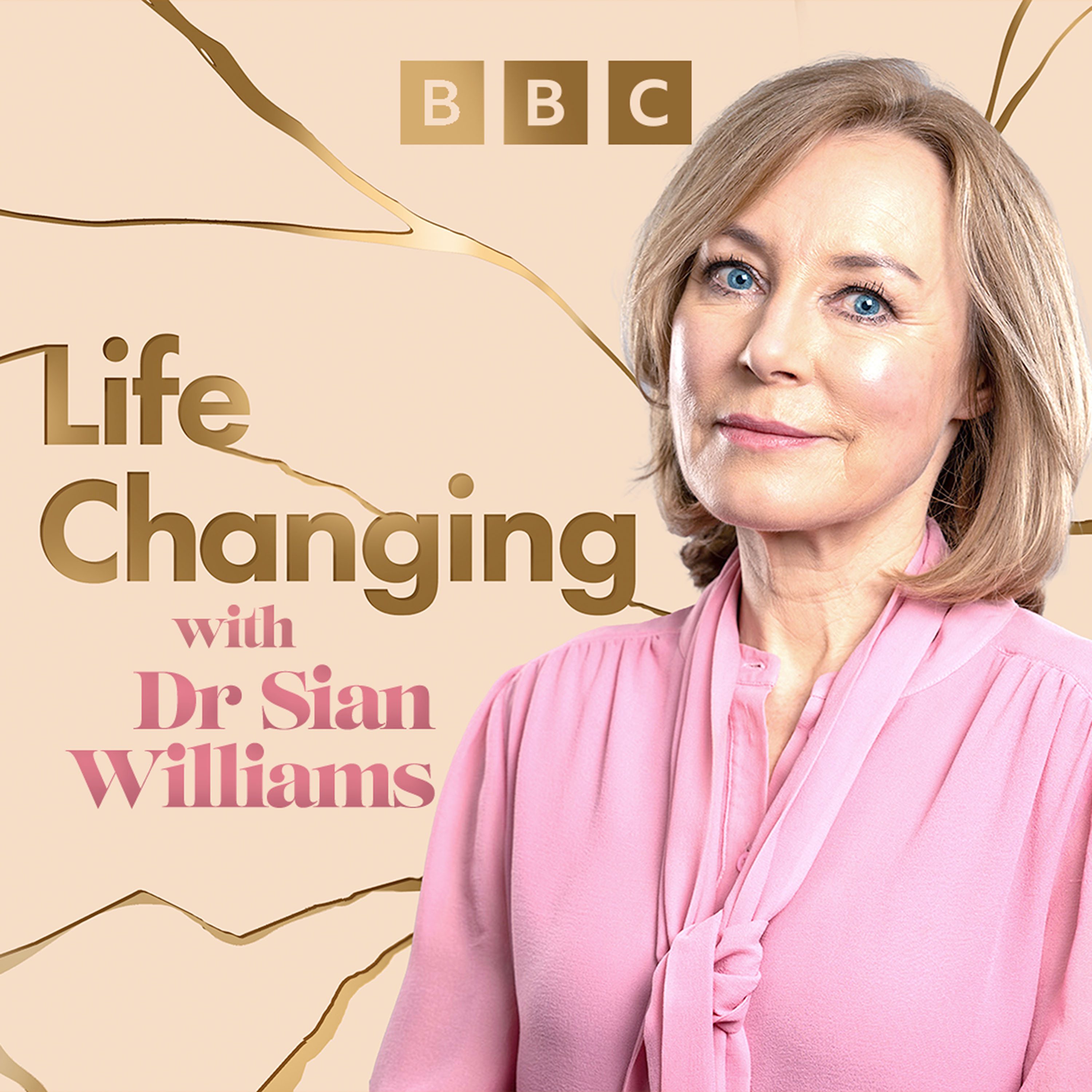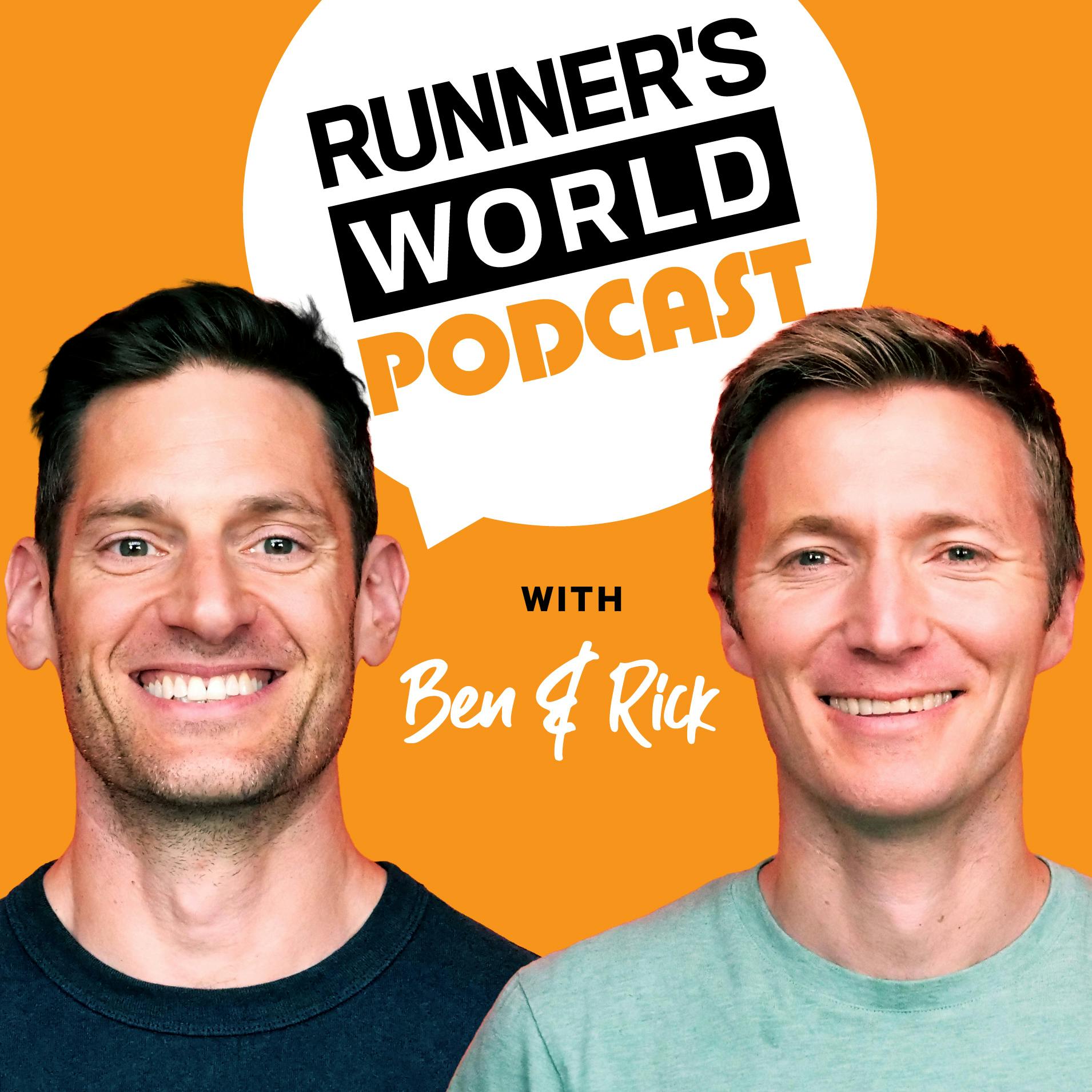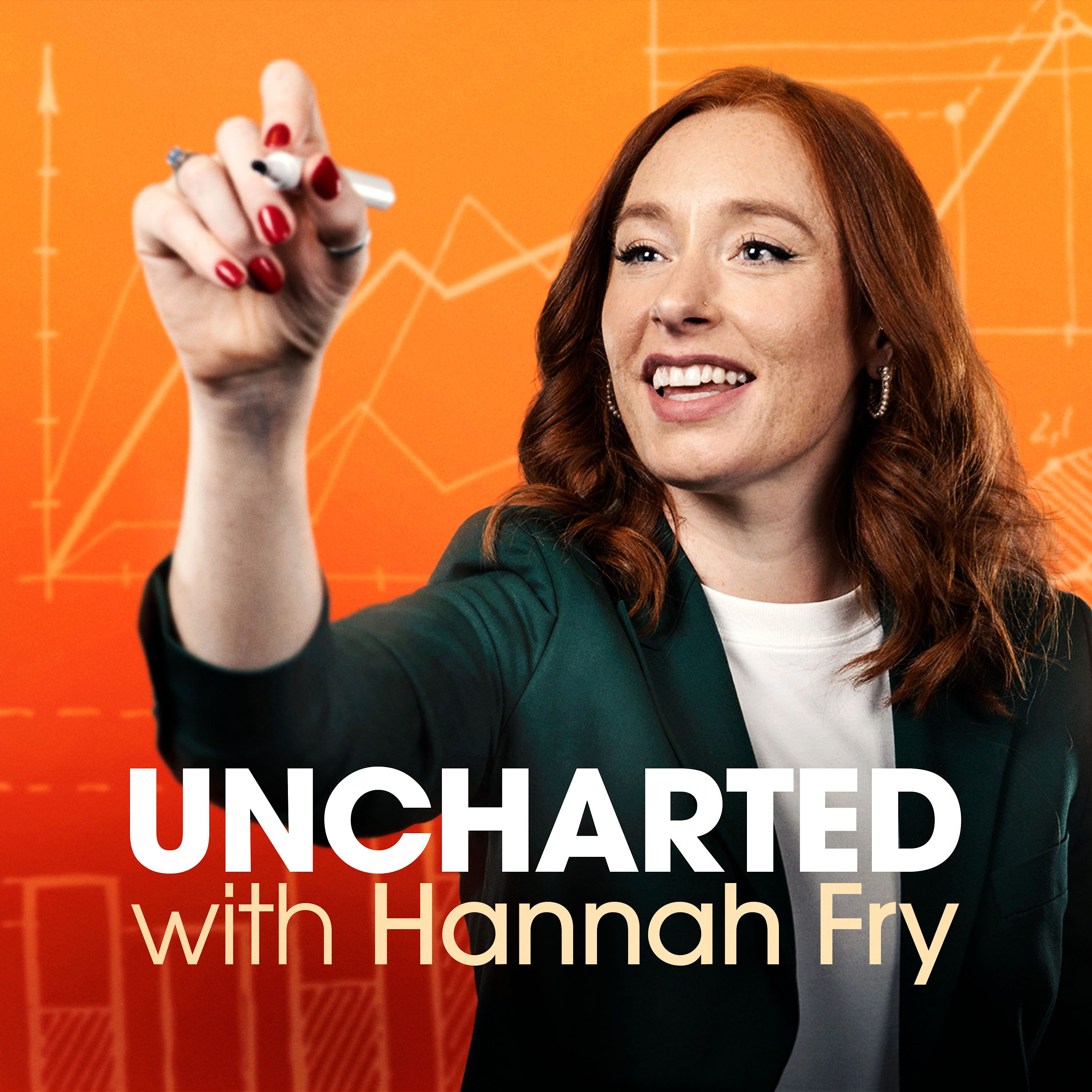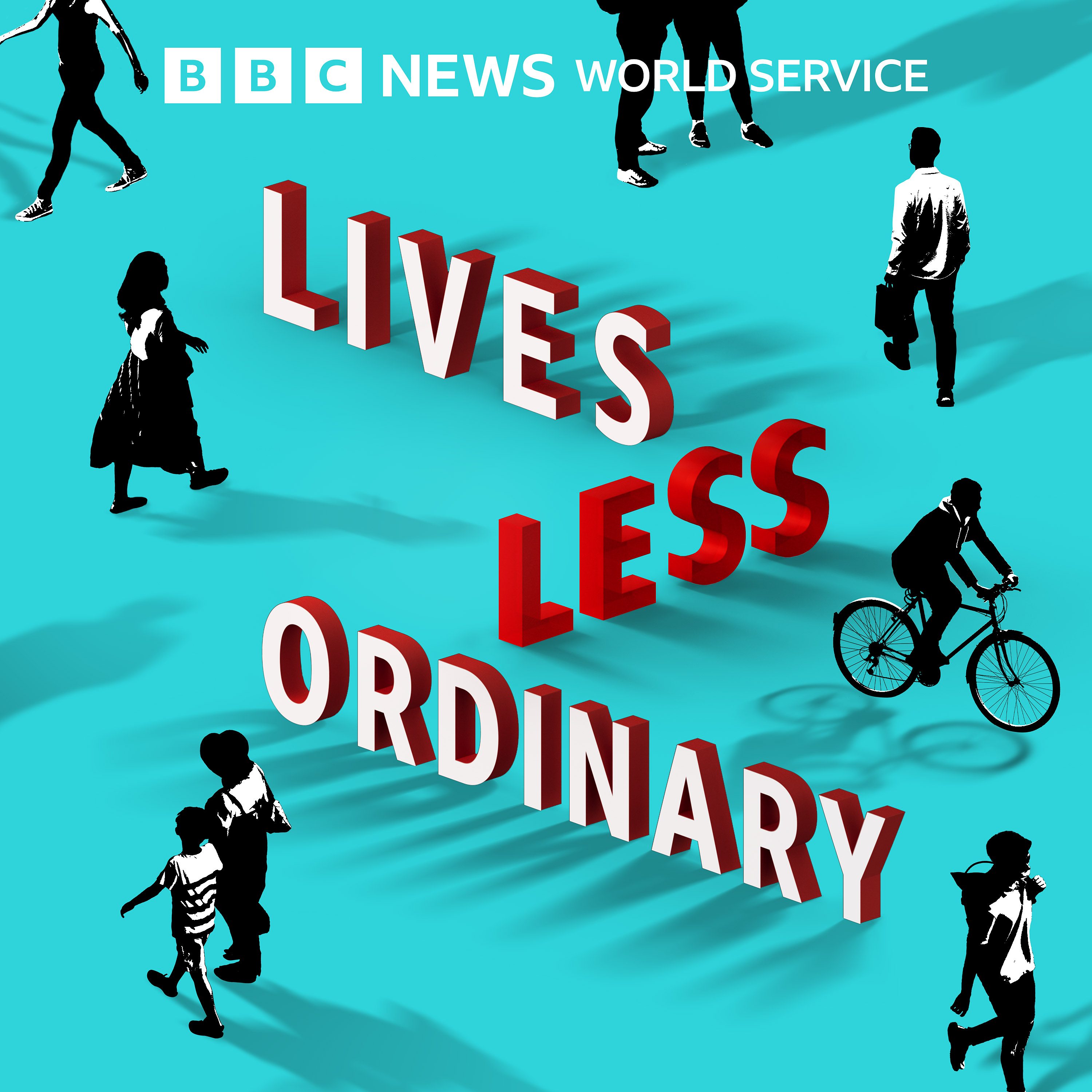
Brian's Run Pod
Welcome to Brian's Run Pod, the podcast where we lace up our running shoes and explore the exhilarating world of running. Whether you're a seasoned marathoner, a casual jogger, or just thinking about taking your first stride, this podcast is your ultimate companion on your running journey.
Join us as we dive deep into the sport of running, covering everything from training tips and race strategies to personal stories and inspiring interviews with runners from all walks of life. Whether you're looking to improve your race times, stay motivated, or simply enjoy the therapeutic rhythm of running, Brian's Run Pod has something for every runner.
Brian's Run Pod
Part Two Interview with Jules Scudder from RunningRewire .
Use Left/Right to seek, Home/End to jump to start or end. Hold shift to jump forward or backward.
Are you ready to transform your running routine and find new motivation? In this enlightening episode of Brian's Run Pod, I continue my conversation with Jules Scudder from RunningRewire. Jules, an expert coach specializing in women who are pre-menopausal or experiencing menopause, shares her philosophy of personalized coaching and the innovative Run Some initiative. Discover how seamlessly running can be integrated into daily activities, like running errands, and learn about the importance of human interaction and adaptability in coaching.
Empowerment and resilience are at the forefront of our discussion. We explore the necessity of a balanced approach to running, especially for aging athletes, and the value of cross-training and strength conditioning. Jules and I delve into the mental challenges that come with injuries, emphasizing how having a coach can help maintain motivation and focus during recovery. It's about seeing the positives in every run and embracing the journey, even when setbacks occur.
Women in perimenopause face unique challenges, and Jules offers invaluable insights into managing anxiety and physical barriers through supportive community environments and stress management. We also touch on essential topics like incontinence, random aches and pains, and the complex relationship between stress and estrogen production. Jules provides general nutritional advice and highlights the importance of seeking specialized guidance for more in-depth needs. Don't miss the chance to connect with Jules online at RunningRewire.com and on Instagram @runningrewire, where she continues to share her wealth of knowledge and inspiration.
Brian's Run Pod has become interactive with the audience. If you look at the top of the Episode description tap on "Send us a Text Message". You can tell me what you think of the episode or alternatively what you would like covered. If your lucky I might even read them out on the podcast.
Instagram
So you're thinking about running but not sure how to take the first step. My name is Brian Patterson and I'm here to help. Welcome to Brian's Rompod. Welcome back to brian's run pod and I'm your host, brian patterson. Now, in the second part of my discussion with jules scudder from running rewire, we carry on talking about this wonderful running initiative called run some, and jules talks about her approach to coaching and how she has a particular focus on women who are pre-menopause and those that are going through the menopause. There's just so much more in this jam-packed episode and we could have talked for hours. Anyway, I really hope you enjoy this episode as much as I did. I just want to say thanks again to Jules for coming on the podcast.
Brian:Because I know my wife and I you said that as growing up and I know I mean I'm someone who's grew up in Bang, in the middle of London, central London, when we were, you know, going to the asked to go to the shops or something. We'd run to the shops, you know, and it's just something. It was just something so natural, you know. You know you'd run to the shops, or if you're doing an errand for your parents or something like that, you'd run, or whatever, and it was just a very natural thing. I think that's a really great way of thinking about it.
Jules:Yeah, it's easier in some parts of the country obviously. I mean, if you're living in more remote places it might not be so convenient to run to the shop. No, but even sort of running to the post box to post a letter, just any short journeys just to get you moving a little bit more. And going back to the sort of run-commute idea, if you don't want to arrive at work all sweaty, take your run stuff, your running kit and then run home because that's where your shower is, so at least do one part of the journey as a run commute. So just just trying to encourage people just to get out and be a bit more active yeah, yeah, now, when.
Brian:Now you, you have a know, you have a community of people who you, who you coach. What's been your kind of approach to coaching?
Jules:There are so many apps and platforms and various different ways that you can find run coaching these days, and I wanted to be a human. I wanted to be an actual person that people could come to. So when I first started, I did a lot more one-to-one work with people locally, and now I do do most of my coaching online. I still like to make it very personal, so if I have an inquiry from someone, I will definitely try and hop on the phone and have a natural conversation with people, which I think is very important because you know, we spend so much of our time typing and messaging and not actually speaking to people.
Brian:Very, yes, very true, very true.
Jules:Yeah, and that's just a nice introduction. I think it's a nice way to, first of all, get to know the person and Just talk about what they want, which sometimes you can't put that across when you're just sending an email. So I do like to hop on the phone, definitely. And then, with regards to how coaching progresses from there, it is very interactive the way I like to work. So, as I said, lots of it is online.
Jules:Now, the way that I deliver my coaching, and I do that through a platform called Final Surge. I mean, there are various different coaching platforms and apps you can use, but basically I will understand what their goals are, where they're currently at and where they need to be, talk about their lifestyle, what you know, what do they do, what do they do for a job, what's their home situation, what support do they have? How much time do they have to dedicate to training? So all these things that you can, you know, build a bigger picture about someone, and then I get them started, ease them in gently, obviously not throw them right in at the deep end. Yeah, training is updated on a weekly basis, so I'm not a big fan of writing a training plan and handing it over. That is definitely something you can get off the internet yeah cater for.
Jules:It doesn't cater for life. It doesn't. It doesn't know you as a person. It doesn't cater for life. It doesn't know you as a person. It doesn't cater for if you want to go on holiday and you're going to miss a couple of weeks, or if you fall ill and you can't do a certain session a following an off-the-shelf plan that they just grabbed from the internet, for example. Yeah, because it can put a lot of pressure on you. You've got it there in black and white oh my god, this is where I'm meant to be at this week and I haven't been able to do it. Should I? Should I then stick it this week? Should I fast forward and go to where I'm meant to be? And you know it's quite stressful, I think, doing it that way. So I am very much the sort of coach that will adapt as we go along.
Brian:Right, okay.
Jules:According to progress. So if things are going really well, then I can encourage you to be a little bit more confident, back yourself a little bit more and try new things.
Brian:But on the flip side of it, if things haven't gone well, like I said, if you know if you've had an illness or you you know you need to take some time out, for example, then a bad week yeah, it's just just just adapting as we go along, so very much on a week-to-week basis yeah, because I know with the apps it kind of gives you these alerts oh you should be running, you know, six times 400 meters with a 30 second rest, and you know that kind of thing and and you kind of feel, maybe, maybe not today, so yeah, but I'd like, I mean, I like the human aspect of it, yes, yeah.
Jules:And also I think it helps the athlete for that extra accountability because they know that there's an actual living person checking in on them.
Brian:Yeah.
Jules:Not just an app that doesn't really care whether you do the session or not, and it really helps. It helps with motivation to get out the door if perhaps you're not quite feeling it one day. And yeah, just that accountability, because I can see whether they've completed the session or not, and they will leave me feedback after each session that I can read, and then I'll give them my feedback and then at the end of each week we're in touch via WhatsApp. They'll leave me their weekly feedback. I will leave weekly feedback for what they've just done and then I'll explain the following week. That's about to come.
Brian:All right, Okay, that's good. Are there any key mistakes that you see? Generalized, let's say for the audience what people do.
Jules:Going back to that sort of consistency, I see a lot more progress in performance levels, if, if, if some of this just more consistent with their training and not not kind of fobbing off and making excuses. People that are willing to put the work in will get the results, you know and that's not to say that there are not valid excuses for not training. Of course there are, like you know, we've just covered the illness or what have you. But, yeah, some of the, some of the people that I work with, a lot of the people I work with which I'm sure we'll get onto later are women going through perimenopause and there are certain barriers to training and I understand those. But I think that, yeah, the biggest, the one biggest mistake is lack of consistency.
Brian:Right. So you know, if you have someone who's really overeager, then you know you can sort of like rein them, rein them back.
Jules:That's, that's not too I mean eager ego honestly is good, but, yes, understanding the importance of recovery yeah it is a massive thing. If you're not taking recovery as an just as an important part of training, then you you're you're ending up in a disaster. I think you're gonna risk burnout, you're gonna risk injury. So, yeah, seeing recovery is as part of the training is is crucial well, what advice would you give someone?
Brian:let's say who is plateauing, let's say a 10k times 55 minutes, and I can't seem to you know, I mean, I know it's difficult, you, you know every, each individual is different.
Jules:So is there any? I think it's. It's looking at that individual's past training, what they're, what they're currently doing and, yeah, getting to the bottom of why and quite often it will be because they are doing the same things over and over again. There isn't that mix. There isn't enough variety in their training. They're not sort of they're not taking the slow runs slow, they're not perhaps including any longer runs to work on aerobic endurance and then they're not mixing up the key sessions in between. So you know different types of speed training, for example.
Brian:I know you talk about on the website rewiring your running mindset. I know mental health has been quite a big thing, but can you expand on that?
Jules:Yeah. So I think it's rewiring your approach to running and this ties in nicely with, for example, someone that is plateauing and has been doing the same thing time and time again and wondering why they're not progressing any. And it's just being open-minded open-minded to try new things, to try a different approach to training that you might not have done before, to look at the bigger picture, to look at lifestyle nutrition. You know, how are you thinking about your runs? Are you looking for positives, even if a run hasn't particularly gone well? Because there's always something to learn from our runs and you know each and every run is part of a learning journey. You know they're not all going to be brilliant. You're not going to go and absolutely smash every race. You're not going to have a brilliant run every time you go out and train. And it's learning from that and discovering why things might not go a certain way, but also acceptance that they don't always have to go brilliantly. Things are not always. You know that.
Jules:This is life yes, it's not, it's not linear yeah, yeah so it's. It's it's being able to yeah, just look at running in a wider perspective and not just this is what I want to do. Therefore, I'm going to run four times a week and ignore everything else around there. So you know, going back to the strength and conditioning, including that and the reason behind it and just understanding where each piece of the puzzle fits.
Brian:Do you think sort of less is sometimes more?
Jules:you know, maybe, or even trying alternative exercises, yoga in or pilates, you know that kind of thing and then maybe just you know holding back on the running yeah, I think, especially for athletes that are getting older for sure, which again is, is that largely the you know the sort of demographic that I, that I work with, are women of perimenopausal age, but I also work with with male athletes as well that are sort of not as young as they used to be. Yeah, so, so, yeah, definitely, definitely incorporating cross training. Running is a hugely high impactimpact sport, as we know, and our bodies, they can't keep taking the hit.
Brian:Yes, yeah, yeah, there are a lot of forces going through your….
Jules:A lot of forces going through your lower limb for sure. So, yeah, incorporating cross-training is something that I actively recommend. Me personally, at the moment, I only run three times a week. I do two, two sessions of cross training on the bike, do two strength and conditioning sessions and I do pilates. So that's that's what goes into my week, and then, obviously, with days for rest and recovery. So so sometimes I'll double up activities, but that's just what I found works for me.
Jules:So, again, it's looking at the athlete as an individual and finding what is going to work for that person. It can be a little bit of trial and error. You're not going to know straight away, as soon as you work with someone, that that's what you have to do. This is how you're going to get to your goal. This is how you're going to know straight away, as soon as you work with someone, that that's what you have to do. This is how you're going to get to your goal. This is how you're going to stop injuries. It's a journey, it's a learning process and it's it's. It's often not a quick one. It's not a quick fix, but the more open and honest that my athletes are with me about how they're feeling how the body's feeling, what their energy levels are like, how a run's gone, what's going on in that week, you know where their mind's at.
Brian:It all really helps to then really tailor their training specifically for for what's going on and do you think that they because I could see someone like yourself, you know being a coach especially like someone is injured, you know who is having to take time out of running, and this obviously is affecting them sort of mental health, they can sort of feel you know it's something I really enjoy, you know I do I don't know those marathons and that kind of thing but you feel that you know you being their coach, you're there to be kind of like a sounding board.
Jules:Yeah, and well, first of all, I think it's important to understand that we are all at risk of injury at some point. Like I said, it's a high impact sport. It's very unlikely that you're going to go through your running journey with no injury whatsoever, so there will be times when you have to take a break. I personally have been there many times, but you know, in my older years and going through perimenopause myself, I, a couple of years ago, was diagnosed with osteopenia, which is low bone density. All right, I, a couple of years ago, was diagnosed with osteopenia, which is low bone density, which significantly increases my risk of stress fracture, and I've had three of them to date. So I'm fully aware of how that could mess with the mind when you can't run, and it is hard, it is hard.
Jules:It is something that at that moment I'm so glad I have a running coach because, even though you can't run, a coach can help you through that time. They can set you cross training sessions. They can really sort of allow you to sort of flip your thinking around and focus on what you can do and not what you can't, which I think is very important. It's really easy to just stare out the window and feel really deflated and see all the runners go past and just want to cry because you can't do it and and it's really yeah, like I said really sort of thinking of the positives. What can I do to A keep me physically in the game and mentally in the game so that when you do get back to running you can get back to it quicker than if you just sat around doing nothing feeling sorry for yourself?
Brian:And also you're talking to someone who is interested or in the sport you love doing.
Jules:Yeah.
Jules:And that's great and I think, with the cross-training and having that side of things to follow, focusing on your strength a little bit more so that when you come back you're feeling stronger and ready to you know you, there's that old saying you know, come back stronger, which you can do if you have to take some time off running. Put your focus into something else so that when you do come back to running, you are in us and you know you're in, you're in a good shape to to, to, to continue and, yeah, still still achieve your goals. It doesn't, it's, it's not, it's not game over. When you get injured, it's just a little bit of a setback and it's managing. Managing that setback as best you can, which like, yeah, which I think helps when you've got, for example, a coach in your corner, you've got someone to still remain accountable to and, yeah, you just just got someone backing you you've touched on this before, but I I mean in terms of coaching women.
Brian:You know premenopausal or menopausal, you know how do their needs change and how do you approach coaching them.
Jules:Yeah. So obviously there are loads of symptoms that women can get in perimenopause I won't reel them all off because we could be here quite a while but one of the main things, I think, is a lack of confidence often. So women quite often have spent many, many years looking after everyone else and not really focusing on themselves and can quite often feel like it's a little bit selfish to do so firstly. But if they do want to then focus on themselves, it's oh my goodness. Well, how do I do that? I can't, you know I can't do this. And it's building that confidence, it's allowing them to, yeah, to take that time to realize that it's all right to do something for yourself. You know you have spent many, many years working, looking after children, caring for older relatives, numerous amounts of things and, yeah, just, it's good to take, it's good to take back some time for you. So working with them to build their confidence is really important for important for me also.
Jules:You know we can suffer with some anxiety when, when we hit perimenopause, yeah, and that may, that may sort of, you know, pop up in all sorts of different shapes or forms. But some people literally do feel anxious putting their trainers on and getting out the door. Yes, so it's. It's, it's it's empathizing, it's listening, it's providing that safe space for them to to feel supported and to to feel, to feel that they are worthy of doing what they want to do and, and yeah, just having that support network around you. And you know, even though I do coach all of my runners online, we do have that online community as well. So you know, we have a facebook group and a whatsapp group and everyone is really supportive of each other.
Brian:So it's lovely because I think I've seen, I think, a youtube video of your. There's a group of you running together, a group of women running together. Is that I think you do have?
Jules:groups. I don't know what video you've seen, oh right. It's not uncommon for me to run with a group of people.
Brian:I don't know, but I'm just thinking that running with others helps a lot.
Jules:You know, it's not just a solitary sport. It's not but that sort of links to the anxiety. Some people are quite anxious about running with others because they might feel like people are judging them.
Brian:Oh, yes, yes, I understand.
Jules:There's different sides of it and, like I say, it's just providing a safe space and a listening ear and being there to support them. However they are feeling Other things in perimenopause physical barriers to running. So this week, funnily enough, is World Continence Week.
Brian:Oh, right, okay enough.
Jules:Is world continents week? All right, okay, uh, and incontinence is something that is quite common in women. It can obviously be, you know, a fact of you know when you've given birth to a child, but as we get older, it's because of our decreasing amount of estrogen and that's okay you know, our muscles lose mass.
Jules:So your pelvic floor is a muscle and that's obviously that's losing its elasticity and it's losing its its function as well. So that can have a huge impact. Obviously, if you're out running, then the force of the running on your pelvic floor sorry to get into this, brian.
Brian:No, no, that's fine, thank you for that information, that's fine.
Jules:So, yeah, it's understanding that that can happen, that that can be a physical barrier to why women wouldn't want to be going out. Running might be sort of getting put off as they get older. Also, some women can experience random aches and pains that they're never used to, that they have not before, which as well can have an impact. So there are so many things that happen to our bodies as we age, as our oestrogen levels decrease.
Jules:But getting those endorphins right going can help yes, yeah, and I you know it does make you feel better when you go out, for sure, but, like I said, some people struggle to get out the door yeah, yeah and, as well you know, as our estrogen levels are dropping, this is going a little bit down the scientific route here.
Brian:Right, no problem.
Jules:So our oestrogen normally is produced by a woman's ovaries and that stops happening and then it becomes the job of our adrenal gland that produces more oestrogen for us and it doesn't do as good a job as the ovaries.
Jules:Ovaries did, all right, and the adrenal gland is also what produces our stress hormones, so cortisol and adrenaline. And you often find that women of perimenopausal age they do have a lot of stress in their lives. There's a lot going on, like you know, like I said, that they've got. They've got children, they've got work, they're juggling, they're spinning plates left, right and center, so their stress levels tend to be quite high. And when your stress levels are high and your adrenal glands are producing the stress hormones, that means that it's producing less estrogen, and that is what we need more of as we get older. So it's kind of a vicious circle really. So we need to try and reduce the stress to allow the body to produce as much oestrogen as it can do. And that's where I think having someone in your corner, having a training plan, having a little bit of routine, can help just normalize things, make things a little less stressful, that you're not having to worry about so much on your own.
Brian:And just generally being active can help.
Jules:Yeah, absolutely.
Brian:Do you give much advice on the nutritional side or do you just sort of kind of go?
Jules:Yeah, I mean not as a rule. I mean I'm not qualified nutritionist at all. Um, I can give general nutrition advice and if any of my athletes want that, then I'm happy to help, but it's it's not. It's not something I'm specialized in qualification wise you do.
Brian:I mean, it's not really a big factor.
Jules:Well, unless you're going quite a elite level, yeah, I mean I, I will obviously give them basic nutrition advice and and definitely centered around race training and race days and things like that, but on a broader spectrum then no, I would definitely point them in the direction direction of someone that was more qualified than me.
Brian:Well, I just want to say well, it's coming to the end of our podcast, but thank you, jules, so much for coming on to the podcast. Are there any links at social media or website you'd like to sort of tell us about and promote?
Jules:No, my website is runningrewirecom and that's my Instagram handle as well runningrewire. So, yep, give me a follow, and it's been an absolute pleasure having a chat with you. Thank you so much for having me.
Brian:Yeah, you've been a fountain of, you know, jewels of information. Forgive the pun, so that just came to the top of my head. So and thank you very, very much for coming on the podcast. Thanks very much.
Jules:It's been great.
Podcasts we love
Check out these other fine podcasts recommended by us, not an algorithm.

Life Changing
BBC Radio 4
Tech Life
BBC World Service
Runner's World Podcast
Runner's World UK
Buzzcast
Buzzsprout
Newscast
BBC News
Understand
BBC Radio 4
Cyber Hack
BBC World Service
Ghost Story
Audible| Pineapple Street StudiosDiz Runs Radio: Running, Life, & Everything In Between
Join Denny Krahe, AKA Diz, as he talks with a variety of runners about running, life, and everything in between.
Uncharted with Hannah Fry
BBC Radio 4
The Global Story
BBC World Service
The Coming Storm
BBC Radio 4
Lives Less Ordinary
BBC World Service
Do Epic Shit Today Podcast
Hannah Mulhern
The Rest Is History
Goalhanger
